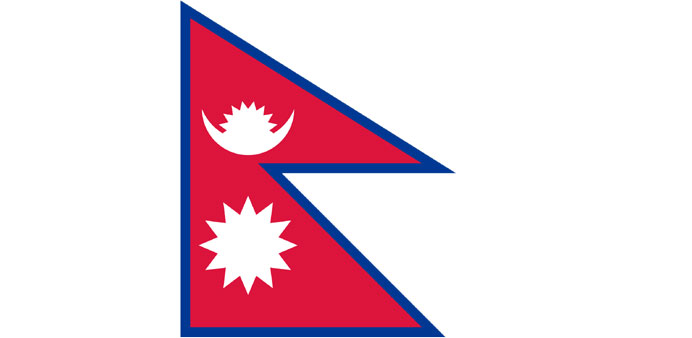DPA/Kathmandu
At the height of Nepal’s civil war in April 2002, Asha was taken for interrogation after the local police station was bombed by rebels. She was 14 years old.
Twelve years later, she is still fighting for justice against the men she says beat and raped her over the following 38 days.
Victims of violence committed during the Maoist rebellion are struggling to get on with their lives while the parliament slowly hammers out the details of post-conflict government.
Parliament on Sunday tabled a bill to form a Truth and Reconciliation Commission (TRC), amid disagreement over what wartime crimes can be amnestied, and which must be prosecuted.
Rapists have now been specifically excluded from any exoneration by the provisions of a bill on transitional justice that went before the house on April 7.
Asha, who asked to only give her first name, wants to see her abusers punished.
“The war came to our village in December 2001, when the Maoists bombed the police station” in Lamki, a town near her village in the plains of far western Nepal, she said.
Five months later she was returning from harvesting wheat and preparing to take a bath when four police vans pulled up.
“They told me I was a Maoist rebel and involved in the Lamki bombing,” she said, her eyes focused on the wall.
“They asked me how many people I killed. When I denied it they put their gun against my head and then in my mouth.”
She was held for more than a month in a crowded cell, and repeatedly beaten and raped despite her young age.
“They kicked my face with their boots,” she said. “They beat me so hard that I still can’t walk properly.”
The abuse left Asha needing medical treatment for her leg and reproductive organs.
The Maoists and the government forces fought from 1996 to 2006. More than 17,000 people were killed, 14,000 disappeared and 5,000 left maimed.
Much of the conflict played out in rural areas, with locals often caught in the crossfire or shot on suspicion of helping one side or the other.
A peace deal was signed in November 2006, but the difficulties are far from over for many survivors.
Governmental efforts to overcome the past conflict come as reports by human rights bodies found excesses committed by both sides in the conflict.
But the process has been deadlocked by wrangling over the mandate of the TRC, as critics including some opposition parties accuse the government of trying to use the commission to implement a blanket amnesty for its forces.
“If you allow the TRC capacity to barter amnesty for certain benefits, there is no purpose,” said constitutional expert Bipin Adhikari. “The process of reconciliation doesn’t mean establishing impunity or evading punishment.”
UN High Commissioner for Human Rights Navi Pillay said: “While I welcome steps taken by the government of Nepal to take the transitional justice process forward, I am extremely concerned by its new attempt to introduce amnesties for serious human rights violations.”
The government has denied it is pushing for a blanket amnesty.
“We should not forget that the peace process and the constitution drafting are intertwined,” Nepali Congress lawmaker Krishna Prasad Sitaula told the Kathmandu Post. “We will have to arrest almost everyone if we start bringing up war-era cases.”
Victims’ rights advocates welcomed the transitional justice bill tabled this month, excluding sexual assault from the list of crimes that can escape prosecution.
“Victims of other crimes against humanity can be sufficiently compensated through reparation measures. Rape, however, attacks a woman’s dignity,” said Pradeep Gyawali, a parliamentarian and member of the group that drafted the bill.
Rape victims also suffer social stigma, and are therefore “the most in need of state support,” she was quoted as saying by Ekantipur news service online.
After her abuse in custody, Asha was ostracised and had to drop out of school, and now runs a fish farm with the help of her family.
Last year she joined a political party, hoping to find a platform, but says she was not heard even within the party.
Asha’s appeals to human rights organisations in the capital have not been more successful.
“I have registered my case with the Human Rights Commission. But I am told the process is long and the Truth and Reconciliation Commission has to come into being before my case can go to trial.”
“But I have not given up,” she says. “Asha means hope.”

